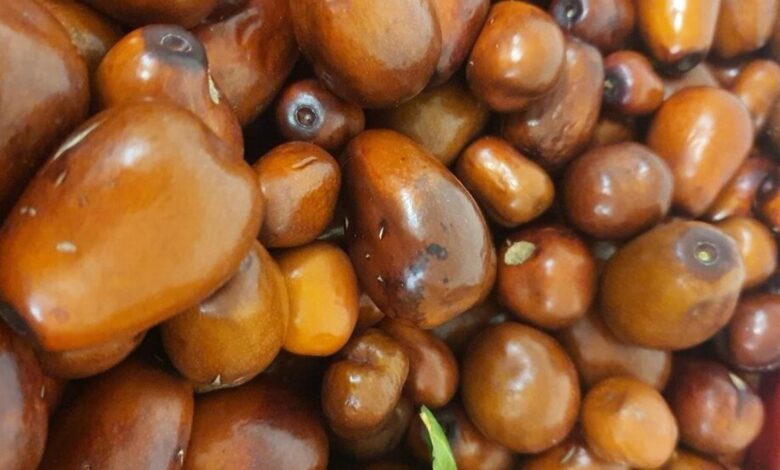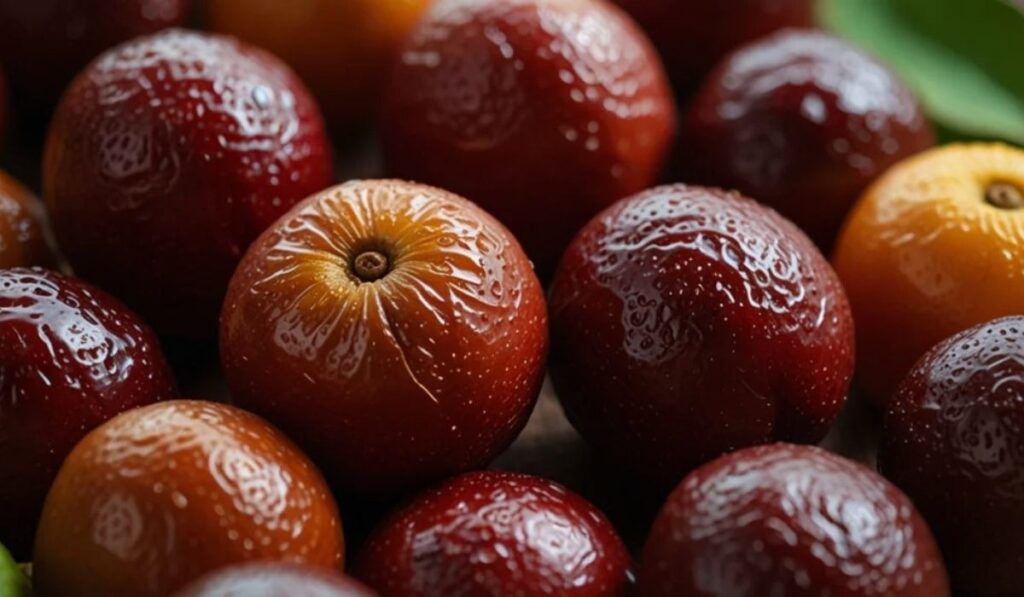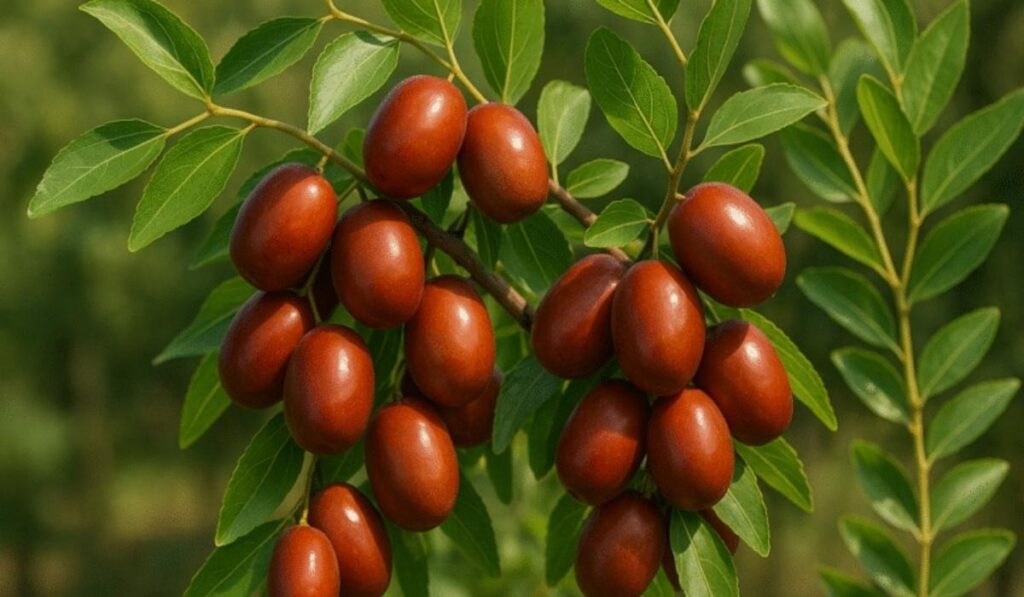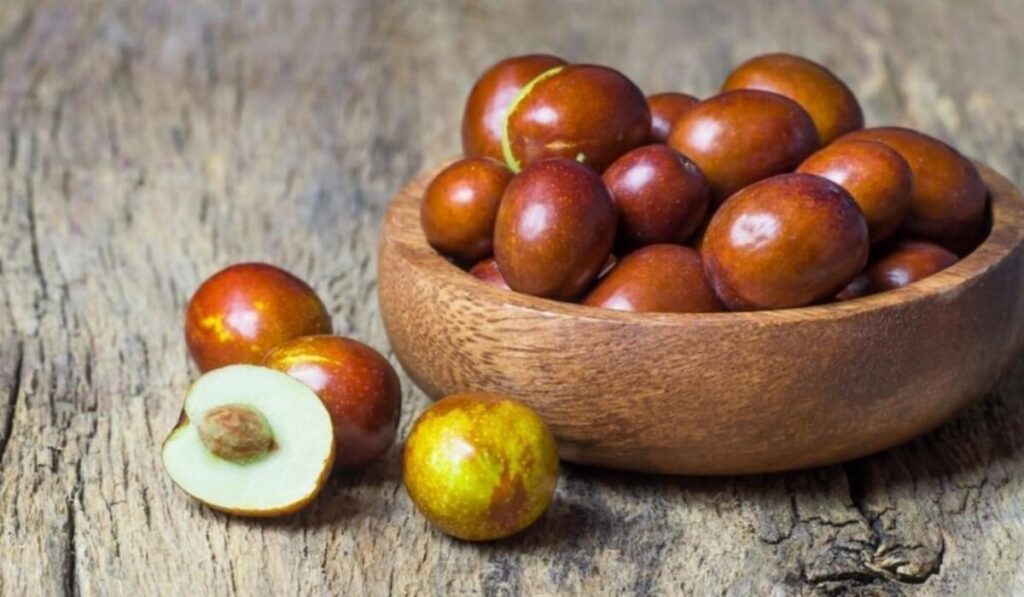Žižole: The Ancient Superfruit with Amazing Health Benefits

Žižole, also known as jujube or Chinese date, is one of the oldest cultivated fruits in human history. Originating thousands of years ago in parts of Asia and later spreading across the Mediterranean, this small, reddish-brown fruit has long been cherished for its delicious taste and remarkable medicinal qualities. While many superfoods have gained global fame in recent decades, Žižole remains an underrated gem, offering a combination of vitamins, minerals, and antioxidants that can significantly boost overall health. Today, as the world rediscovers traditional foods with powerful healing properties, Žižole is regaining the recognition it truly deserves.
Quick Bio
| Attribute | Details |
| Scientific Name | Ziziphus jujuba |
| Common Names | Žižole, Jujube, Chinese Date |
| Family | Rhamnaceae |
| Origin | Asia (China) and Mediterranean regions |
| Fruit Type | Small, oval, reddish-brown drupe |
| Taste | Sweet, apple-like when fresh; date-like when dried |
| Nutrients | Vitamin C, B-complex, potassium, calcium, magnesium, antioxidants |
| Traditional Uses | Sleep aid, immune booster, digestion enhancer |
| Modern Uses | Dried fruit, tea, supplements, snacks |
| Harvest Season | Late summer to early autumn |
The Origins and History of Žižole
The story of Žižole stretches back more than 4,000 years. Historical records suggest that the fruit was cultivated in ancient China during the early dynastic periods and later made its way to Europe via trade routes. In the Mediterranean, particularly in regions like Croatia, Italy, and Greece, Žižole trees thrived under the warm sun and dry soil. The fruit quickly became a symbol of nourishment and vitality. Ancient healers used every part of the Žižole plant—from its fruits to its seeds and leaves—to prepare herbal tonics for improving sleep, digestion, and immunity. Over centuries, Žižole earned a revered status as a “fruit of life,” sustaining people through harsh seasons and offering natural remedies.
Nutritional Value of Žižole

Žižole is packed with essential nutrients that contribute to its reputation as a superfruit. It is an excellent source of vitamin C, which strengthens the immune system, helps the body absorb iron, and protects cells from oxidative damage. The fruit also contains notable amounts of vitamin B complex, potassium, calcium, phosphorus, and magnesium—all of which are vital for maintaining energy levels, muscle function, and bone health. Moreover, Žižole is rich in antioxidants such as flavonoids and polyphenols, known for their ability to combat inflammation and free radicals. Its high fiber content aids digestion, while natural sugars provide a quick energy boost without the crashes associated with processed sweets.
Health Benefits of Žižole
The health benefits of Žižole are wide-ranging, supported both by traditional knowledge and modern scientific research. One of its most celebrated effects is its ability to promote better sleep and reduce anxiety. The fruit contains compounds that help calm the nervous system, making it a popular ingredient in natural sleep aids. Regular consumption of can also support cardiovascular health by improving blood circulation and reducing cholesterol levels. Studies have shown that its antioxidant properties help lower the risk of chronic diseases like diabetes and certain cancers. Additionally, the fruit’s natural anti-inflammatory compounds make it beneficial for joint and muscle health. Whether eaten fresh or dried, Žižole serves as a potent daily dose of natural wellness.
Žižole in Traditional Medicine

In ancient medicine systems, particularly Traditional Chinese Medicine (TCM), has been used for centuries to balance energy, calm the mind, and strengthen internal organs. Healers often recommended it for patients suffering from fatigue, digestive issues, or emotional stress. In Mediterranean folk medicine, the fruit was considered a cure for colds, coughs, and sore throats. People also used-infused teas and syrups as natural remedies for boosting immunity during the winter. The seeds, when crushed, were sometimes mixed into herbal tonics believed to enhance sleep and memory. Even today, traditional healers in rural areas continue to value as a holistic food that heals both body and mind.
How to Eat Žižole
One of the wonderful aspects of Žižole is its versatility. It can be enjoyed fresh, dried, or even turned into jams, teas, or candies. Fresh fruits have a crisp texture and a sweet flavor that resembles apples, while dried ones develop a chewy consistency with a richer, date-like taste. In many regions, dried is boiled into soothing teas, often combined with honey or ginger for added flavor and health benefits. The fruit can also be used in desserts, baked goods, or savory dishes, giving a unique blend of sweetness and nutrition. In modern cuisine, has become a trendy ingredient for smoothies and energy bars, appealing to health-conscious individuals who prefer natural sources of nutrients.
Growing and Harvesting Žižole

The Žižole tree is hardy, drought-tolerant, and well-adapted to warm climates. It thrives in well-drained soil and requires minimal care, making it a sustainable crop for farmers. The tree can grow up to ten meters tall, producing small, oval-shaped fruits that ripen from green to reddish-brown as they mature. Harvesting typically occurs in late summer or early autumn when the fruits reach full sweetness. Once picked, they can be consumed immediately or sun-dried for long-term storage. Traditional farmers often dry naturally under the sun, a process that enhances both flavor and nutrient concentration. This sustainable cultivation method ensures that remains an environmentally friendly superfruit for generations to come.
The Role of Žižole in Modern Nutrition
In the age of processed foods and synthetic supplements, offers a refreshing return to natural nutrition. Nutritionists increasingly recommend it as part of a balanced diet because it provides a wide spectrum of vitamins, minerals, and antioxidants in their natural form. Unlike many commercial snacks, has no added sugars or preservatives, making it a perfect alternative for those seeking healthy energy sources. Health enthusiasts around the world are now embracing for its detoxifying and rejuvenating qualities. Whether consumed as a snack, in smoothies, or as herbal tea, this fruit helps improve digestion, enhance skin health, and support the immune system naturally.
The Cultural Significance of Žižole

Beyond its nutritional and medicinal value, carries deep cultural importance in many societies. In Mediterranean regions, the fruit symbolizes friendship and hospitality. Families traditionally served Žižole to guests as a gesture of warmth and goodwill. In Asia, particularly China and Korea, is associated with longevity and good fortune. It is often featured in festivals, religious offerings, and wedding ceremonies as a token of blessings and prosperity. The enduring presence of in cultural rituals highlights its symbolic connection to life, health, and abundance. Even in modern times, this cultural reverence continues to keep Žižole alive in both culinary and spiritual traditions.
Scientific Research on Žižole
Recent studies have begun to validate what ancient healers already knew about health-enhancing properties. Researchers have discovered that bioactive compounds in the fruit, such as saponins and triterpenoids, exhibit antioxidant, anti-inflammatory, and immune-boosting effects. Some studies suggest that extracts may help protect liver function, regulate blood sugar levels, and improve cognitive performance. Clinical trials have also indicated that the fruit may assist in reducing anxiety and depression symptoms. As scientific interest grows, is emerging as a promising natural ingredient in the pharmaceutical and wellness industries. Its combination of safety, nutritional richness, and therapeutic potential makes it a subject of ongoing medical research worldwide.
Žižole in the Global Market
With the rising global demand for natural and functional foods, Žižole is slowly making its way into health stores, organic markets, and online platforms. Many small-scale producers in Mediterranean and Asian countries are promoting-based products such as teas, syrups, powders, and dried fruit snacks. As consumers become more health-conscious, the demand for clean, plant-based nutrition continues to increase, placing among the most promising natural foods of the decade. Its growing popularity also offers economic opportunities for farmers in rural regions who cultivate Žižole traditionally, thereby preserving agricultural heritage while supporting sustainable livelihoods.
Conclusion
Žižole is more than just a fruit—it is a living link between ancient wisdom and modern wellness. Its incredible range of nutrients, medicinal properties, and cultural significance make it one of the world’s most remarkable natural foods. From supporting sleep and immunity to promoting heart and liver health, stands as a timeless reminder that true nutrition lies in simplicity and tradition. As people increasingly seek natural ways to improve their health, is once again finding its rightful place in kitchens, herbal remedies, and wellness routines around the world. Rediscovering this ancient superfruit could be one of the best steps toward achieving a balanced and healthy lifestyle.
Frequently Asked Questions
1. What is Žižole used for?
- Žižole is used for improving sleep, strengthening immunity, aiding digestion, and enhancing overall wellness. It has long been valued in traditional medicine for its calming and rejuvenating effects.
2. Can Žižole help with anxiety or insomnia?
- Yes, Žižole is known for its natural sedative properties. Compounds found in the fruit help relax the nervous system and promote deeper, more restful sleep, making it an effective natural aid for anxiety and insomnia.
3. Is Žižole safe to eat every day?
- Žižole is safe for daily consumption in moderate amounts. Its natural vitamins, minerals, and antioxidants provide consistent health benefits without harmful side effects.
4. How can I add Žižole to my diet?
- You can eat Žižole fresh, dried, or brewed into tea. It also works well in smoothies, jams, and desserts, offering both flavor and nutrition.
5. Where can I buy Žižole?
- Žižole can be found in health food stores, organic markets, and online retailers. In some Mediterranean and Asian regions, it is sold fresh during harvest season and dried throughout the year.





